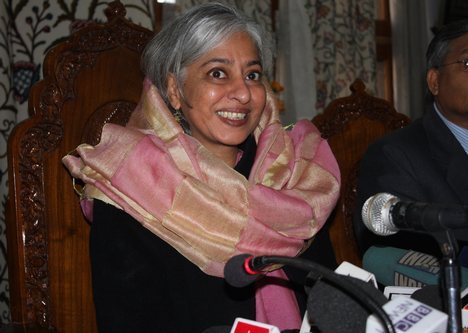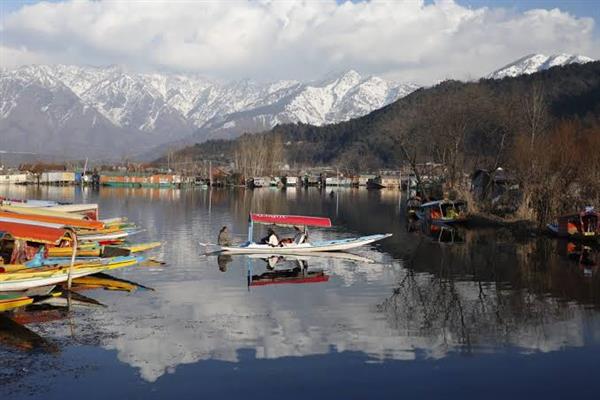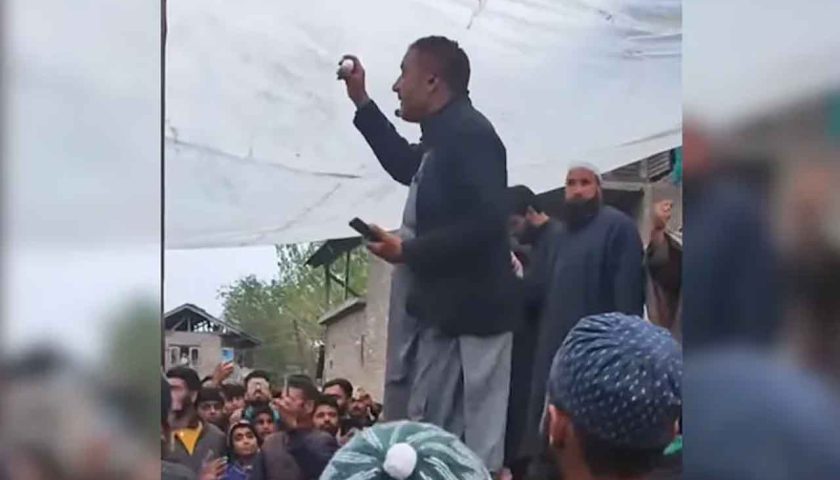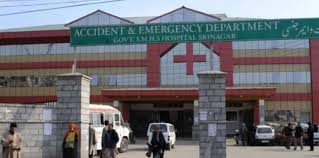The roadmap offered by the Modi administration concedes so little that it seems grudging at best and a diktat at worst
Prime Minister Narendra Modi’s meeting with political leaders from Jammu and Kashmir was understandably hyped, given that it came after almost two years, during which most of the then state’s political leaders were imprisoned by his administration. That the meeting was cordial and each of the 14 participants spoke freely is another plus.
Yet, the broad framework presented by the Prime Minister is disturbing. By saying delimitation first, elections next and then statehood to follow, he has, in essence, asked Kashmir’s political leaders to give up their opposition to the acts of August 2019, accept the reading down of Article 370 and the division of the state, and contest assembly elections under a Union territory status. In return, Home Minister Amit Shah offers a restoration of statehood “at the appropriate time”. When that will be is anyone’s guess, though logic suggests it is unlikely to be soon, else why hold elections to a “Union territory” assembly?
Less veiled is the implicit threat in the use of the word “appropriate”. For the past two years, the Modi administration has argued that its 2019 policy choices were required for security reasons. But the security situation has changed rapidly since the India-Pakistan ceasefire was agreed on this February. The ceasefire is holding, infiltration has reduced significantly and militancy has dropped by 50 per cent, according to Lieutenant-General D P Pandey, General Officer Commanding (GOC) of the Srinagar-based 15 Corps. The army’s role, he added, was diminishing, and more and more tasks were being handled by civilian authorities.
So, if security concerns are no longer pressing reasons for withholding statehood, what is? The only sense to be made of the indefinite delay is that the Modi administration is still unsure of the Valley’s political leaders. In this reading, statehood will be contingent on the good behavior of the Valley’s political leaders, as judged by the BJP.
First responses from the Valley’s political leaders, however, were relatively optimistic. They were, of course, being statesmanlike. Even so, it appears that the majority are ready to make significant concessions. The most vocal opponents of Modi’s Kashmir policy, the six-party People’s Alliance for the Gupkar Declaration (PAGD), for example, indicated that they would be willing to delink statehood from Article 370, so long as the statehood on offer is identical to all other states in its powers.
In other words, the PAGD will continue to challenge the reading down of Article 370 but will not make its return a condition. Indeed, according to Omar Abdullah, his party recognises that regaining special status is a long haul. That is a huge concession.
It is too early to say whether these comments indicate that the PAGD will participate in Union-territory-level assembly elections. If we take Modi’s roadmap literally, my guess is that the answer must be no. The PAGD parties will lose much of what little is left of their credibility if they agree to participate on these terms. True, by not participating they leave the field open to BJP and allied parties to be elected unopposed, as happened with many of the panchayat seats in 2018. In this devil’s choice, they may choose what appears to be a lesser evil.
But whichever way the PAGD goes, the Modi administration’s roadmap is fraught with risk. It does not matter how much money is thrown at the Valley parties, or how many defections are engineered, the PAGD parties are likely to win the bulk of assembly seats. What happens after? Under the watchful eye of the Home Minister, and with most powers vested in the Lieutenant-Governor, an elected Union territory government will have little to offer its constituencies, other than development aid, that is, money.
Given the enormous economic loss suffered by Jammu and Kashmir due to the military lockdown of 2019-2020, followed by the Covid-19 pandemic, money may work for a short while, though even that is doubtful. Like its predecessors, the Modi administration has tried throwing money at Kashmir in the hope of blunting political aspirations. Like them, it has failed.
Why successive Indian administrations repeatedly seek to use money to avoid granting political freedoms in Jammu and Kashmir is a conundrum to which I have yet to find an answer. Yes, it buys them time, but it also entrenches the politics of contention; indeed, allows contention to spread in tentacles across society. Prime Ministers Atal Bihari Vajpayee and Manmohan Singh recognised the problem and had the courage to initiate a political process that yielded rich dividends in the decade 2003-2013. The Modi administration overturned those gains with their unilateral actions in August 2019. Today, alienation in the Valley stands at a point of no return.
In such a situation, what is required is a bold and imaginative political initiative, such as the one Vajpayee took in 1999, when he started talks with Kashmiri dissidents and Pakistan. He persisted even in the face of failed summits and mounting violence and his persistence paid off, with Singh’s follow-through. Jammu and Kashmir gained a decade of peace.
The Modi administration is currently in back-channel talks with the Khan administration and the Pakistani army. That Kashmir is on the agenda is a no-brainer, as is the deduction that the talks provide a context for the Prime Minister’s meeting with Kashmiri leaders. But Modi’s roadmap offers so few concessions that it seems grudging at best and a diktat at worst. A clear commitment to statehood followed by elections might begin a process of confidence-building. A Union territory assembly will not.
The one potentially positive outcome to this meeting is that the Home Minister will set up a panel for the release of political prisoners. Even here, though, the concession is grudging. Indications are the panel will not discuss the release of dissidents such as Hurriyat members, though L K Advani did so when he was the Home Minister.
Modi can still adopt the roadmap developed by Vajpayee and Singh. It would boost the ongoing India-Pakistan talks. More importantly, perhaps, India could then re-win some of the Kashmiri hearts and minds that were so wantonly tossed aside in 2019.






